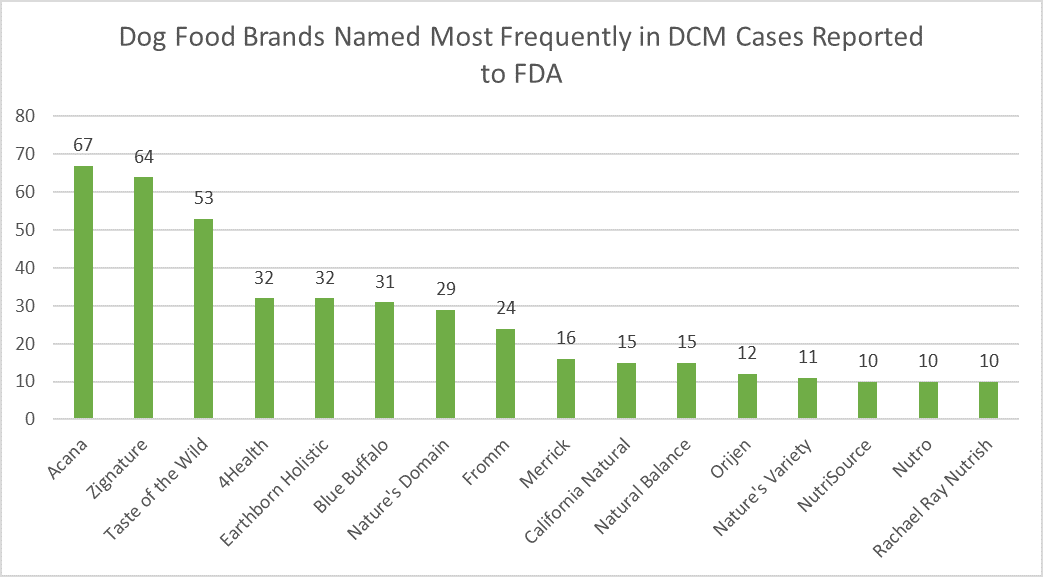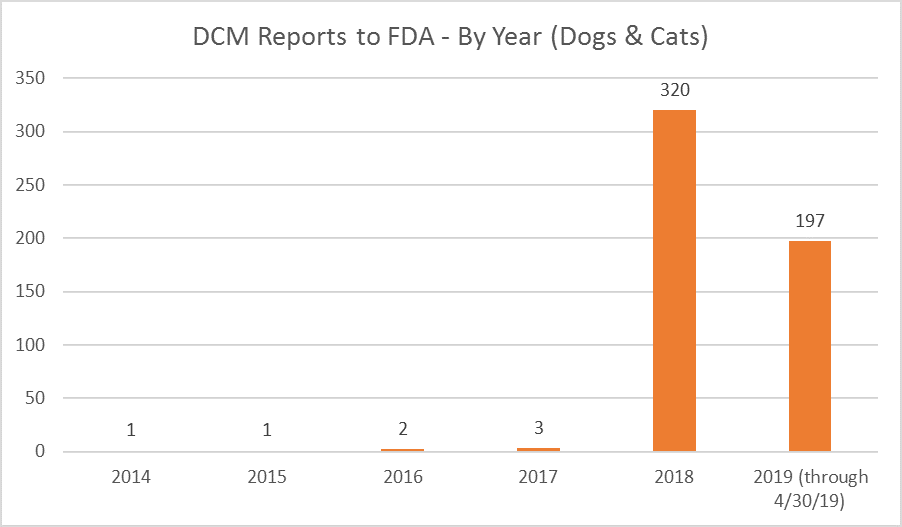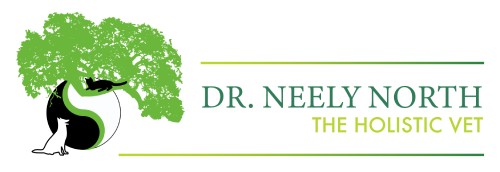What is the problem with Grain Free Foods?
This is a question that does not have a simple answer. As a matter of fact, we don’t have a direct answer. So I will do my best to break it down showing what we know, what to do, and where to find answers. In short, we have seen a huge increase in the cases of dilated cardiomyopathy reported to the FDA in the past few years. Typically, 2 or 3 case per year were reported. The number of cases reported in 2018 through April 2019 is 500. Now, there are 70 million pet dogs in the USA at any time (depending on what stats you use/ believe). I think it’s a good idea to consider how many pets this has happened to that HAVE NOT BEEN REPORTED. I only practice traditional veterinary medicine on a part time basis and I’ve seen a few cases where I was suspicious but we were not able to diagnose the pet in order to report it to the FDA (typically due to financial constraints).
What do we know:
1. It’s not JUST ‘grain free’ diets. It’s diets that are any of the following:
- Boutique
- Exotic protein sources
- Grain free
2. Of the cases that were reported/ worked up, these are the dog food brands we have seen linked to disease:(note: all are in dry kibble form)

3. Just adding some ‘grain’ or ‘taurine supplement’ while continuing to feed a suspect diet is not enough. The problem is, we don’t know what exactly is the problem. If it was as simple as needing more taurine, it wouldn’t be such a big issue. Many of the dogs that are sick with DCM have normal taurine levels. We don’t know if it’s due to the legumes in the diet, the lack of grain, the protein source etc. All we know at this point is there is a pattern. The FDA, veterinarians and veterinary cardiologists are working hard to find out how to define the issue.
4. This is real. It’s more than a pattern.

Here is the link to the full report from the FDA:
https://www.fda.gov/animal-veterinary/news-events/fda-investigation-potential-link-between-certain-diets-and-canine-dilated-cardiomyopathy
How do I know if my dog has DCM?
What are the Signs of DCM?
Signs of DCM vary depending on the breed of dog and stage of the disease. Loss of appetite, pale gums, increased heart rate, coughing, difficulty breathing, periods of weakness, and fainting are signs commonly seen. Since blood is backed up into the lungs, respiratory signs (CHF) due to pulmonary edema are most common. Blood returning to the right side of the heart from the body may also back up leading to fluid accumulation in the abdomen (ascites) or in the chest cavity (pleural effusion). Weakness or collapse may be caused by abnormal heart rhythms (arrhythmias) and occasionally, decreased blood flow to the body (depressed cardiac output).In some breeds, sudden death or fainting can occur well before any signs of CHF.
Source: Veterinary Partner / Robert Prosek, DVM, DACVIM
Here is a link to the full article explaining DCM
https://veterinarypartner.vin.com/default.aspx?pid=19239&id=4952598
Here is an article by a Veterinary Cardiologist with a summary of the problem:
Diets and Heart Disease in Dogs and Cats Mark Rishniw, BVSc, PhD, DACVIM (SA-IM), DACVIM (CA)
Can pet diets cause heart problems? Yes.
Thirty years ago, veterinarians recognized deficiency of an amino acid (taurine) as the most common cause of dilated cardiomyopathy in cats. Cats are unable to make their own taurine (just like people can’t make their own vitamin C) and must ingest it to stay healthy. Taurine is plentiful in most animal tissues. Being carnivores, domestic, feral and wild cats that hunt for their food derive adequate taurine from their diet. However, some commercial cat foods at that time contained insufficient amounts of taurine causing dilated cardiomyopathy and other health issues. This discovery resulted in pet food companies adding more taurine to the foods they manufacture. Subsequently, taurine-associated dilated cardiomyopathy in cats has all-but disappeared. It is occasionally diagnosed when cat owners feed unbalanced diets (e.g., boiled poultry or vegetarian diets).A few years later, certain breeds of dogs were found to also have dilated cardiomyopathy in association with taurine deficiency. This was unexpected because dogs, unlike cats, are able to synthesize taurine from other sulfur-containing amino acids in their food. Investigators suspected that these breeds were unable to synthesize taurine in amounts needed to replace losses. Taurine is typically efficiently recycled in the small intestine, but various dietary factors can affect this process. When supplemented with high doses of taurine, these dogs resolved their cardiomyopathy in many cases.Since that time, specific categories of diets have been sporadically implicated in heart disease. One group of Newfoundlands that were fed a commercial lamb-and-rice diet developed taurine deficiency and reversible cardiomyopathy. Other dogs have also been found to have taurine deficiency when fed similar lamb-and-rice diets. Occasionally, dogs fed vegan or vegetarian diets have been taurine deficient and suffering heart disease.Most recently, Golden Retrievers have been identified as having a taurine-deficiency associated cardiomyopathy.Is the current diet-associated cardiomyopathy caused by taurine deficiency?The current evidence suggests that the recent “outbreak” of cardiomyopathy in dogs is likely not primarily related to taurine deficiency. Blood assays of taurine in many affected dogs show normal taurine concentrations. The observations suggesting this condition is related to taurine deficiency originate from populations where several of the affected dogs were Golden Retrievers (who are a special case, as described above). It is hypothesized by some that being taurine deficient makes these dogs more susceptible to whatever is causing the current diet-associated cardiomyopathy. Because of concerns from some veterinary researchers about the methods used to assess taurine status in the studied populations with few or no Golden Retrievers, we cannot completely rule out the role of taurine deficiency at this time in all breeds. Time will tell.If it’s not taurine, what is the cause?We don’t know. The only common link that investigators have observed is “grain-free” diets that use lentils and other legumes (peas) as the “base ingredient.” There are currently many theories, but no definitive answers explaining how these diets cause the cardiomyopathy. Are all “limited ingredient” or “grain free” diets at fault?Some dogs are prescribed diets to diagnose and treat allergies (skin or gastrointestinal diseases). Such diets might include a limited number of uncommon ingredients, such as salmon, kangaroo, potatoes, peas, etc. At this point, no therapeutic diets, manufactured by the major pet food manufacturers (Hills, Purina, Royal Canin), have been associated with current cases of diet-associated cardiomyopathy.There is no medical or nutritional indication for “grain free” although some veterinary therapeutic diets recommended to diagnose and treat allergies are also grain free. They are chosen because the ingredients happen to be novel for the specific patient, but they are not used because they lack grains per se. Grain free is simply a marketing category and there is no specific benefit.What should I do if my dog eats a grain-free legume based or other implicated diet?First, check the ingredient label. If peas or lentils are the main ingredient (or main carbohydrate source), consider changing to a diet that contains grains.Second, if you are reluctant to change the diet, consult your veterinarian about having a cardiac ultrasound (echocardiogram) to see if your dog has evidence of cardiomyopathy. If your dog is found to be affected, even if it’s showing no clinical signs, change the diet to a grain-based commercial diet. Most nutritionists recommend using the WSAVA guidelines for selection of commercial diets. Third, if you have a dog that is “at risk” for taurine deficiency (American Cocker Spaniel, Golden Retriever, Newfoundland, Dalmatian) and eating an implicated diet, have the blood taurine levels checked. Measure both whole blood and plasma collected at the same time to enable the most accurate interpretation of your dog’s taurine status. If those are low, determine if the dog has cardiomyopathy with a cardiac ultrasound, change the diet, and supplement taurine as directed by your veterinarian.Your veterinarian might suggest measuring taurine in other breeds as well. The more data collected, the more likely researchers will be able to resolve whether taurine deficiency plays a primary or secondary role in causing this diet-associated cardiomyopathy.Your veterinarian or veterinary cardiologist is the one best able to advise you about the most appropriate course of action for your dog.What about cats?A few cat cases have been reported to the FDA, but the numbers are too small to say anything definitive. This appears to be primarily a dog problem.
Here is a link to a case report by a veterinary cardiologist – in case you have questions of what it looks like when a pet gets sick from this, what is the best way to work up the case to help find out what caused it, etc
https://www.wsava.org/News-Events/News/Respiratory-Distress-in-a-Border-Collie

